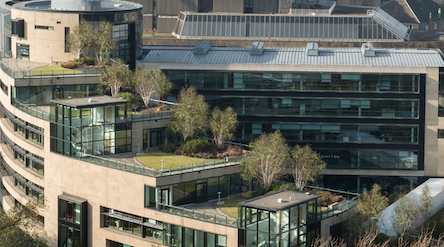By Mark McSherry
Baillie Gifford’s £2.6 billion Monks Investment Trust plc said its net asset value (NAV) total return was -1.6% and share price total return was -7% in the year to April 30, while the FTSE World Index returned +3.2%.
“This is a disappointing outcome against the backdrop of last year’s declines,” said Monks.
“It is now eight years since the change in investment approach was implemented in March 2015.
“Since the end of March 2015, the NAV total return has been +126.7% against the comparative index at +127.4%.
“Over the same period, the share price total return was +131.3%.
“Recent underperformance by growth stocks has wiped out the cumulative gains of the prior years.
“We are very mindful of the need to return to outperformance, in a variety of market conditions.”
The fund aims for long-term capital growth, which takes priority over income.
The Monks Investment Trust’s biggest holdings are Microsoft, Elevance Health Inc, Martin Marietta Materials, Amazon.com, Moody’s, Prosus, Reliance Industries, Service Corporation International, Alphabet and Pernod Ricard.
The fund’s managers, Spencer Adair and Malcolm MacColl, wrote: “Performance has been disappointing, and we recognise that we have made mistakes.
“We have taken decisive action in repositioning the portfolio and are excited by what we perceive to be a growing opportunity set.
“Sustainable wealth generation is a function of the underlying performance of businesses from an operational standpoint and the compounding of cashflows over long periods of time.
“In this regard, the Monks portfolio is in good shape — on a 3-year forward basis the portfolio’s earnings are forecast to grow at more than twice the market rate. We stand confidently behind the portfolio and our investee companies’ potential to drive positive returns for investors over the long term …
“The current team has managed The Monks Investment Trust for eight years. Over this period, the fair value NAV total return has been +126.7% (share price +131.3%) compared to the comparative index (FTSE World) which returned +127.4%.
“The year to April 2023 has been challenging. The fair value NAV total return was -1.6% (share price -7.0%) against the comparative index total return of +3.2%.
“Following very strong performance throughout the pandemic, as many online businesses performed well, a combination of rising inflation and interest rates and the potential for weaker demand has undermined investor confidence in earlier-stage, high-growth companies.
“This precipitated a sharp contraction in valuations that was most acute within the ‘Rapid’ growth portion of the Monks portfolio. The overhang on high-growth stocks is reflected in the holdings that have detracted most from Monks’ performance.
“The largest is The Schiehallion Fund, a closed-ended investment company managed by Baillie Gifford that invests in late-stage private companies. This makes up approximately half of Monks’ modest private company exposure (3.9% of total assets).
“The underlying operational progress of the companies in Schiehallion’s portfolio continues to be strong – average revenue growth was over +50% in 2022 – and we remain confident about its long-term potential.
“Elsewhere, the share prices for similarly high-growth holdings like Farfetch (online luxury goods), Cloudflare (internet performance and security) and Datadog (cloud-based systems monitoring) have all detracted …
“There have been companies in the portfolio for which strong operational performance has been rewarded in share price terms.
“Highlights include AJ Gallagher, the US insurance brokerage which has been successfully raising prices and buying competitors, Alnylam Pharmaceutical, a leader in gene silencing treatment that has been taking positive steps in broadening the application of its main treatment and MercadoLibre, the South American ecommerce platform that continues to grow its micro-financing and payments ecosystem …
“The portfolio, as characterised by Monks’ three growth profiles (Stalwart, Rapid and Cyclical), has shifted materially over the past twelve months.
“The sharp fall in the share prices of ‘Rapid’ stocks and decisive moves on our part to sell holdings where operational progress has been underwhelming, has resulted in the proportion of the portfolio invested in these types of companies falling by 10 percentage points (from 40 per cent at the end of April 2022).
“Elsewhere, the portfolio’s ‘Stalwart’ growth companies, with their steadier and more certain growth profile, have performed their balancing role in the portfolio well through this difficult period …”
